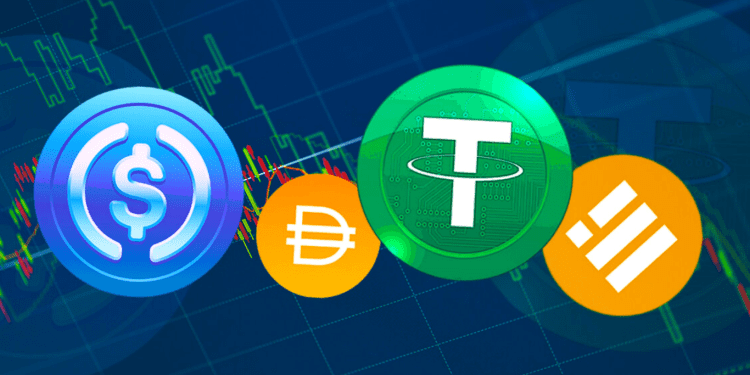- The Congressional Committee on Digital Assets, FinTech, and Inclusion is conducting regular hearings and preparing draft legislation focused on the regulation of stablecoins
- While there’s a growing consensus among Subcommittee members on certain aspects of stablecoin regulation, the concept of applying a securities framework is yet to be embraced by Congress
- SEC Chair Gary Gensler has voiced his belief that stablecoins could be classified as securities, comparing them to “casino poker chips” or potential security-based swaps
A buzz echoes the halls of the Congressional Committee focused on digital assets, fintech, and inclusion. This buzz signifies another impending probe into the world of stablecoins, marking the third such inquisition within a lunar month. The Committee’s web portal is now adorned with new legislative blueprints, courtesy of Committee Chairperson Rep. Patrick McHenry and Ranking Member Rep. Maxine Waters. These newly proposed drafts resonate with similar sentiments from their joint recommendation last year, underscoring the unwavering resolve of the House to pass a bill in this burgeoning sphere.
Although the Subcommittee members hold varying viewpoints on crypto regulation, certain foundational elements related to payment stablecoins are garnering unanimous agreement. However, the intriguing absence of any suggestions by Congress to supervise the number of stablecoins under a securities framework should be considered. Even though the SEC, a formidable player in the financial regulation arena, seems poised to adopt such a methodology, it might be considered reckless for any financial overseers to encroach upon Congress’s territory with hasty regulatory strides, especially considering the steady legislative undertakings concerning stablecoins.
The SEC, led by Chair Gary Gensler, has yet to propose a regulation formally, provide a set of guidelines, or instigate an enforcement action relating to stablecoin usage. However, Gensler has not been shy about expressing his view that these so-called stablecoins could fall under the securities classification. Drawing parallels to casino poker chips and potential security-based swaps, Gensler posits that these digital tokens, when used within cryptocurrency exchanges, could face impending enforcement actions from the SEC, which perceives certain payment stablecoins as securities.
In an environment of rapid evolution and intricate developments, finding a harmonious balance between crypto enthusiasts and U.S. regulatory bodies is increasingly challenging. Despite these obstacles, a budding consensus on the necessity for sweeping legislation related to payment stablecoins offers Congress a golden opportunity to impose sensible regulations on a vital segment of the cryptocurrency market.
Why the SEC Does Not Like Stablecoins
The U.S. Securities and Exchange Commission (SEC) has been closely scrutinizing stablecoins, a form of cryptocurrency pegged to a stable asset like the U.S. dollar, due to concerns over potential illicit activities and regulatory classification. SEC Chair Gary Gensler believes stablecoins should be regulated like banks, requiring Federal Reserve approval before launching new coins.
Meanwhile, Circle CEO Jeremy Allaire argues that stablecoins are not securities and should be considered payment systems instead. Recently, the President’s Working Group on Financial Markets released a report recommending that the SEC take the lead in regulating stablecoin issuers, registering them with regulators, and enforcing anti-money laundering regulations similar to those for banks.
As the crypto market evolves, the SEC aims to protect investors by ensuring effective rules are in place to prevent fraud and abuse within the stablecoin space.














